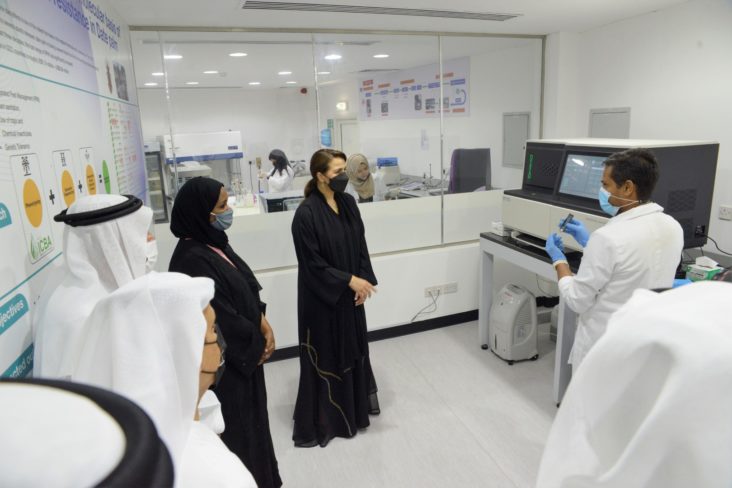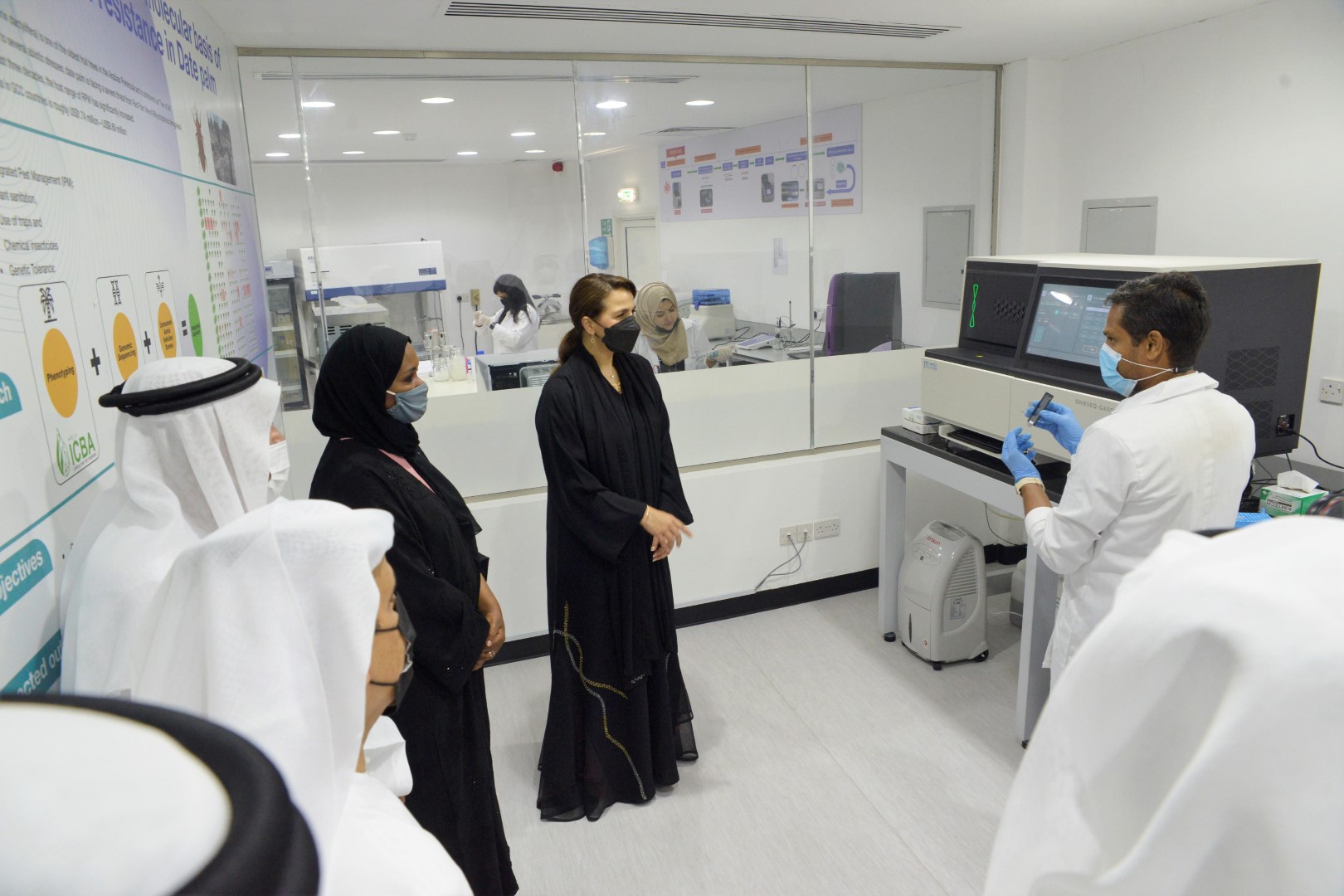[ad_1]

A new advanced genomic research facility was opened at the International Center for Bio-Salt Agriculture (ICBA) on Thursday to further conduct genomic research, including healthier, more nutritious and more resilient crops for sustainable food systems .
As a joint venture between ICBA and BGI, the world’s largest genomics research organization, the Desert Life Science Laboratory (DLSL) will help to quickly track the discovery and development of food and other crops suitable for marginal environments. These are agricultural ecosystems restricted by a series of factors, such as water shortage, soil and water salinity, high temperature and drought.
Mariam Almheiri, UAE’s Minister of Climate Change and Environment, said: “The Desert Life Sciences Laboratory is a vital initiative and an important complement to the UAE’s food security efforts, as stipulated in the country’s 2051 National Food Security Strategy. Climate Change The resulting increase in desertification is expanding the marginal environment, so it is a strategic focus to find crops with food value that can not only be tolerated in these environments, but can also thrive in these environments.”
She added: “The Desert Life Sciences Laboratory can help other countries with large marginal areas through advanced research on more resilient and nutritious crops. It enables the UAE to play an important role in helping to achieve the United Nations Sustainable Development Goals. Especially the Sustainable Development Goal 2-achieve zero hunger by 2030.”
The establishment of DLSL is the result of the strategic cooperation between ICBA and BGI.
DLSL will meet the needs of public and private entities in the UAE and other countries for various types of sequencing services. It is specially used for whole genome resequencing, genotyping sequencing, metagenomics, transcriptomics and other omics research.
It is equipped with some of the latest biotechnology equipment, including the next-generation sequencing platform (DNBSEQ-G400RS); M220 focused ultrasound instrument; Agilent Bioanalyzer 2100; and applied biological system real-time PCR.
The laboratory is also equipped with tools such as Qubit 4 fluorometer; PCR machines (Bioer and Applied Biosystems); high-speed centrifuges; autoclaves; laminar flow hoods; and growth chambers.
Dr. Tarifa Alzaabi, Acting Director-General of ICBA, said: “At ICBA, our goal is to provide solutions-from crops to technology-to solve a wide range of problems affecting agriculture and food production in the global marginal environment.
“DLSL will not only promote research on the cultivation of more resilient food and other crops, but will also act as a center for knowledge transfer. More specifically, researchers, experts and students from the UAE and other countries will have the opportunity to participate in various Genomic research and experiments to improve knowledge and gain practical skills.
“In addition, the laboratory will be able to help protect the rights of local plant breeders by providing plant variety registration, identification and verification services. Ultimately, it will strengthen ICBA’s research and development capabilities to develop the Plants that produce more food to improve food and nutrition security.”
Dr. Wang Ren, special advisor to the chairman of BGI, said: “In the age of plant science genomics, the most advanced equipment in the joint laboratory will also promote exchanges and cooperation between ICBA and China. About 100 million hectares in China are easily salinized. Agricultural land. We are excited about the joint laboratory’s potential to help China address climate change, drought and salinization challenges to ensure sustainable agriculture and food security.”
The laboratory will carry out whole-genome research, from whole-genome association studies to soil metagenomic analysis. DLSL will directly support the strengthening of food security and the resilience of plant genetic resources.
More specifically, it will promote the development of improved varieties of crops that are suitable for local conditions and are more resource-efficient. It will also be used for molecular characterization and genome analysis of plant genetic resources available in the ICBA gene bank. The gene bank stores approximately 15,140 germplasm of 270 drought-tolerant, heat-resistant and salt-tolerant plant species from more than 150 countries and regions, including approximately 270 seed samples from 70 wild and cultivated plant species from all over the UAE . The laboratory can also provide similar services for gene banks in other countries through bilateral and multilateral cooperation.
In addition, DLSL can be used as a diagnostic tool to assist in the registration of plant varieties and determine whether certain varieties fall under plant variety protection regulations. DLSL will also provide opportunities to strengthen the capabilities of UAE and foreign scientists, experts and students in genomic research.
In addition, DLSL will indirectly contribute to the UAE’s international development assistance program by providing farmers and other stakeholders with new genotypes of different crops adapted to local conditions.
Ultimately, through cooperation with BGI, the laboratory will inject new impetus into ICBA’s efforts to make the food system more resilient and sustainable.
[ad_2]
Source link
